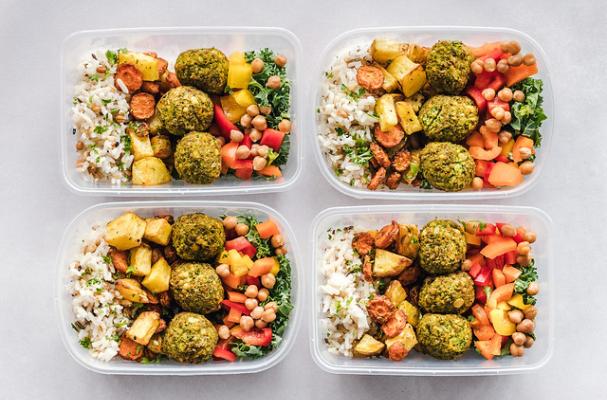
With a new year upon us, you're probably thinking about all the things you did in 2019 that were perhaps a little less frugal than you would have preferred - like all the meals you paid for at restaurants when you could have made them yourself. Or if you've made it as far as bringing lunch, perhaps you're considering meal prep.
If you don't know what that means, meal prep is exactly what it sounds like: preparing meals ahead of time. Not only will you save money compared to eating out, but with a little planning, you'll reduce what you spend on food significantly.
Have a Plan
Not surprisingly, then, step one is to know what you want to cook. Meal prepping might seem intimidating at first, but don't be frightened by the prospect of planning a meal for your lunch. There are scores of websites and cookbooks from which you can borrow ideas. Once you master a handful of recipes, you'll be more efficient in buying food for them and executing them efficiently.
Know How to Store Leftovers
Invest in some glass or plastic containers that seal and can be frozen to hold on to leftovers. You're probably thinking that we mean you can use these to store what you make for your meals, which you can. However, you can also save any extra ingredients not used in your prep for a given week. This way, you'll maximize your money spent on bulk ingredients. Use what you've got leftover to make a tasty soup!
Do the Crazy Chicken
Chicken is one of the most affordable proteins out there, and it's high in nutritional value. Many people consider chicken to be a "second-rate" protein; however, if you can learn to cook it right and use it in the right recipes, chicken is delicious. See if you can find ways to incorporate this high-protein white meat into your meal prep plan to save money while delivering maximum nutrition. In addition to this, occasionally...
Go Veggie
Even chicken demands a significant premium compared to vegetables. There are many great ways to find protein in veggies. Trying out some new recipes will expose you to new ideas and save you money. For example, cook vegetarian one day a week or prep vegetarian for one week every month. You'll realize real savings, and you might be surprised at how tasty the dishes are!
Buy Spices in Bulk
When shopping for spices that will last, such as salt and pepper, you can realize some savings by purchasing them in larger derivations. Consider getting the big box and then rationing that out into some of your storage containers for use across a longer period as this will help you avoid repeatedly purchasing smaller derivations that have a higher unit cost and also add the cost of packaging into the equation. For spices that must be fresh, don't worry about this technique.
Eggs! They're Not Just for Breakfast
People often rule out the incredible, edible egg as a meal component when the clock moves into midday. But eggs are a nutritious and cost-effective protein that you can use for a variety of meals. Bake up a lunch frittata with leftover veggies, or use hard-boiled eggs as a quick snack mid-week. You can quickly prepare a half-dozen at the start of the week and have enough to see you through to Friday!
Shop Around
It's an old technique, but a good one. Use print ads and web pages to learn which vendors have the best deals on the ingredients you need for the coming week's meal prep. Visiting multiple stores might not be economical for you, but you can easily decide to use one grocer when they have good deals and alternate to another if your needs are better met there.
Use Coupons
Another old-but-effective practice that many people could benefit from but don't take the time to do are coupons. Coupons can help you unlock some truly great deals and when you're buying in bulk, those savings will add up. There are even apps you can use that help you find where things are on sale and how to get the proper coupon to save on them.
Divide Dishes in the Oven, and the Fridge
Want to make two dishes for the week, but you haven't got two pans? Or maybe you'd prefer to keep from cleaning both. Use foil dividers and do both! Just make sure that the two dishes have similar cooking times so that they'll both come out cooked.
For particularly moist ingredients, separate them in your fridge so that they don't ruin the other components. Assemble your dish just before eating.
Each of these is easy to do, but when you add up all the money you've saved, you might be surprised. You won't be sacrificing your quality meals, either. There are lots of great meal-prep recipes out there, and a whole community that's eager to share and hear your personal takes on how to cook for the long-run. Do you have a recipe you want to share? Pust a comment so your fellow readers can enjoy it!
Jennifer Landis is a freelance writer, blogger at Mindfulness Mama, #girlmom, and dedicated wife. She loves tea, training for races, and tacos. Make more out of #momlife with her!
Image Sources:










